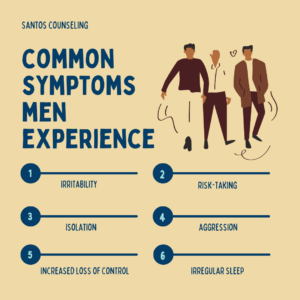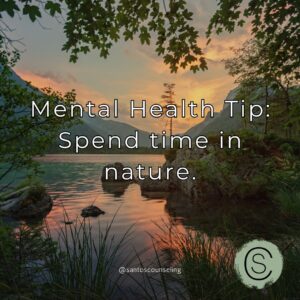Male Therapist In Greensboro, NC
The stigma of mental health continues to act as a barrier for many individuals seeking counseling. For men, seeking therapy typically involves addressing internal thoughts about what mental health is and is not, rethinking masculinity, and navigating judgment.
The masculine norms and societal expectations often stop men from seeking counseling.
According to a report from the APA around 9 percent of men experience feelings of depression and anxiety in the U.S. The CDC brings attention to the rate of suicide among American men. The rate is four times higher than women. I encourage you to consider early intervention. You do not have to wait until things are at a breaking point to work with a counselor. Start counseling today. Establish a relationship, get to know and trust your counselor, and equip yourself with healthy coping skills for the future.

Why men don’t go to therapy?
I would like for you to consider what masculine norms or cultural expectations impact you from seeking counseling or from fully immersing yourself in counseling.
One common masculine norm in Latino culture is connected to machismo. There can be machismo in the form of men not engaging in sharing thoughts and feelings. This in some ways can impact men in feeling that they struggle with sharing their feelings.
Have they stopped you from seeking or continuing counseling?
Common reasons that men don’t go to therapy or stop working with their therapist include:
- The perception of therapy.
- Gender roles.
- Social stigma.
4 Tips Men Can Use To Take Care of Their Mental Health
1. Learn exactly how to validate your feelings.
To be honest there is an actual process to this. It’s not a sprint. It’s a slow process that is purposeful and deliberate. Men often have a hard time with validation of emotions because at some point someone during childhood told them to suck it up or stop crying.
I encourage you to remove this mentality and give yourself love and compassion. Allow yourself to express what you are feeling in a safe, healthy, and constructive manner.
2. Get to know your symptoms.
This you can start doing by using your phone or having a journal on hand. Start by taking 2 minutes 3 times a day to pause and reflect on what you are feeling. This small practice will help you bring aware to your symptoms.
At some point, you are going to realize that the anger you feel is not anger. It is instead a sadness that is tucked away. This exercise helps you pull that out and begin the practice of addressing it.
3. Get to know your body.
A great book to read is called, The Body Keeps Score.
The point I want to make is that of encouraging you to have some sort of idea of when your body needs your help. Some men will tell me that when they feel sad they will also experience a physical symptom. This can be a pain in stomach or a tightness in the shoulders.
What does your body tell you about your mental health?
4. Work with a counselor.
You don’t have to do this alone.
I encourage you to invest in yourself and in the life that you are creating. I often tell men that the work you are doing in the area of mental health is an investment. It will change your life and directly impact those in your life. Click here to see which counselor you would like to get started with.

Men Express Mental Health Issues Differently
If you are a guy out there reading this, I want you to take a moment. Pause. Now think about how you express your mental health issues compared to your counterpart. Men often pull back while women share.
This is interesting enough starts at an early age, it’s why as men age women then to show strength in having stronger friendships. It’s not to say that men do not have friends in adulthood. Instead, it is to bring attention to how men compared to women navigate life and mental health.
Men with depression or anxiety may experience symptoms such as:
- Anger.
- Difficulty managing their mood.
- Getting irritable.
- Lashing out with aggression.
- Pursuing risky behaviors.
- Muscle tension such as body aches/pains.
- Using substances such as alcohol to block emotions.
- Having a hard time focusing.
- Engaging in risky behaviors.
- Avoidance that leads to isolation.
- Sadness that sometimes first looks like quietness.
- Suicidal ideation that can be hidden by anger or sadness.
- Difficulty getting good sleep.
It’s important to remember that some symptoms are hard to see. Men sometimes will have a deep level of sadness while still showing up at work 7 days a week 365 days a year. Some men push down the feeling or tuck it away in their back pocket. What others see instead is emotional distance, anger, irritability, and other top layer feelings that are hiding the core one.



